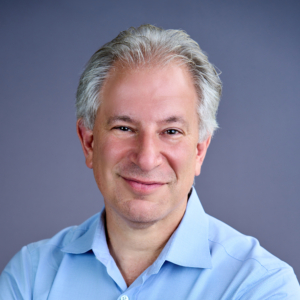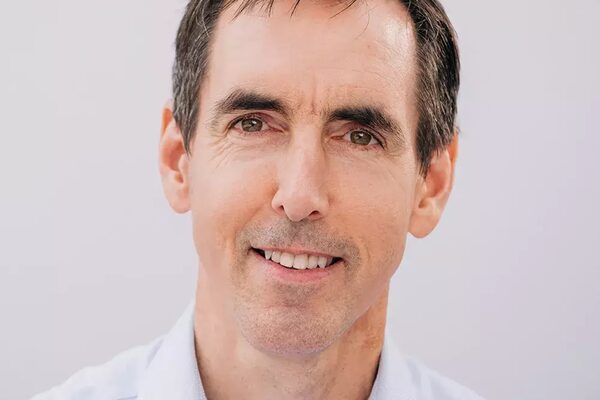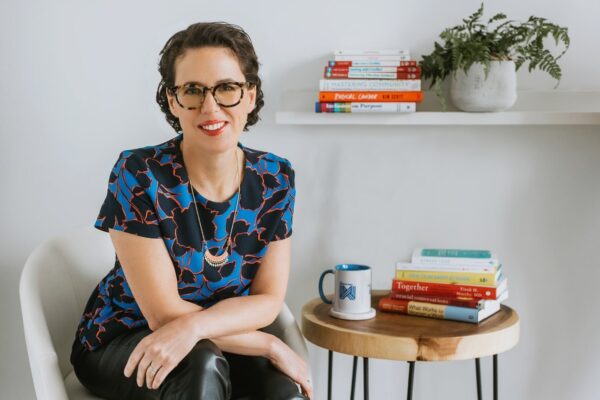
I have spent the better part of twenty years in strategy consulting; I began at McKinsey & Company, co-founded a practice at Mitchell Madison Group and built Katzenbach Partners from a start-up to a firm of $50M annual revenue. After selling Katzenbach Partners to Booz & Company, I was a Senior Partner there before founding Incandescent in 2013. Throughout my career I have been deeply involved in recruiting at the undergraduate level and I frequently get asked for advice by students and recent graduates looking to break into strategy consulting.
At Katzenbach Partners, as co-founder and Managing Partner, I would interview every individual to whom we eventually offered a job. We routinely received applications from twenty percent of the graduating class of Harvard, Yale and Brown – as a small firm that enabled us to be five to ten times as selective as McKinsey or Bain. I’ve now had many years to watch the 150 or so associates we hired out of school develop, not just in their jobs but over the course of their lives. Largely due to our broad view of talent and the culture we built at Katzenbach, these alumni span a large spectrum of leadership roles in different fields. To take three individuals who joined us out of school; Leila Janah, founder of Samasource, has been honored as one of the world’s leading social entrepreneurs; Meredith Petrin is Executive Director of Bizcorps; and Seth Brown is a serial entrepreneur whose impact spans from real estate development to OneTitle, a start-up focused on transforming the title insurance business.
As it is difficult to talk with all of the people beginning their careers who have reached out to me, this post represents an open letter that builds on what I have observed over the years.
There are plenty of sources of advice at a tactical level about interviewing with consulting firms. I won’t add to this pile. My advice starts from a very simple premise. People should do things that they care intrinsically about and are committed to doing with excellence. More than most people realize, jobs don’t just build our skills, networks and credentials – they shape who we are. Consulting firms get a disproportionate share of great twenty-something talent because the best ones are excellent employers. They provide challenging work and great exposure. They stretch people, and teach by apprenticeship. They advance people quickly. They connect the various small tasks of day-to-day work to the big picture. That’s all terrific, except when it attracts people who don’t actually intrinsically value advising large companies and pulls them away from trying to achieve excellence at whatever they do value most.
Junior roles in consulting firms are demanding. On average, an analyst might spend two years, at fifty weeks per year, working 65 or 70 hours per week. So let’s call that 7,000 hours. I believe that before even applying to a consulting firm, it is worth investing 5% of that life energy – 300 to 400 hours of focused time – trying as hard as you can to learn and apply the ways of thinking at the heart of consulting. If the experience is mostly exhilarating, it is both a great affirmation that consulting may be the right choice for you and will be an immense help as a new consultant to metabolize your experiences in a way that will generate the fastest learning and growth. If it is a slog to engage in this way, than best to opt out before making 20x the personal investment.
To lay out a specific program for the 300 to 400 hours, I would suggest something like the following path. This is essentially a training regimen, no different in spirit from how one might prepare for a triathlon.
First 20 – 30 hours: Learn how to learn.
For all the time you spend learning, most students only think about how best to study for tests, but don’t think much about how to be effective as learners. The best consultants are intensely curious about how to do any given activity as well as possible. Looking at learning in this way is both a good foundation for the rest of this training regimen and a good introduction to how consultants think, applied to a student’s own predominant focus.
- Read Geoff Colvin’s book Talent is Overrated . It is an excellent, highly readable distillation of the literature on deliberate practice and a good starting place for the question of “learning how to learn.” Read the book. Then use the book as a tool to reflect on your own approach to learning.
- Identify a handful of areas in which you would like to be better at learning. For instance, perhaps you would like to improve your memory, be able to faster extract the essential argument from readings or relate multiple points of view on a given subject in a more sophisticated way. For each of three or four areas where you can improve, design an experiment to apply the ideas Colvin writes about.
- Do the experiments. Reflect on them. Then write yourself a two-page memo with recommendations about how to learn differently and better going forward. Think about how you, as the writer of the memo, will hold you, as the “client” of the recommendations, accountable.
Next 60 – 70 hours: How do companies make money?
Most learning comes from deep inquiry into simple topics, not from trying to learn a whole textbook full of advanced topics.
- Read Ram Charan’s short book What the CEO Wants You to Know, which looks at the basic economics of business in an exceptionally clear-eyed way. With that book under your belt, get out into the field.
- Look at 2-3 small, easy-to-observe businesses and try to figure out as much about their economics as you can: a dry cleaner, a convenience store, a campus restaurant. Look closely. Watch customers. Above all, count things and do back-of-the-envelope math. How many transactions do you see? How large are the transactions? How many people do you think are working there? What do you think those people are paid? What forms of capital investment do you observe, and how large do you think those investments were? Now, having looked at business at a small scale, focus on the other end of the scale continuum.
- Pick a Fortune 500 size company that’s primarily in one line of business – perhaps McDonald’s, Nike, Pfizer – and read their annual report carefully. Give yourself ten hours or so to really work through it, looking up what the different numbers mean and trying to understand why those numbers make sense. What are accounts receivable, and what kinds of entities would a company like this have accounts receivable from? How much debt has the company issued and how much interest are they paying on that debt? Are their margins similar to other competitors in their industry (look! Calculate!) or different? Why? Look at what investors are saying about the company – a resource like the discussion boards on Seeking Alpha is a good way to see a range of opinions – and connect that back to what you see in the annual report.
You’re now about 100 hours in.
Next 100 hours: Case studies and areas of focus
Practice case studies and get curious about different businesses. Lots has been written about doing case interviews, prepare for them and do them well.
- One good way to do this is to look through a magazine like Fortune, pick one story per issue, and dedicate a couple of hours to really thinking about that company. I’ve used Jennifer Reingold’s provocative piece about Heinz in this way as part of our recruiting process at Incandescent. I had prospective Research Associates read the article and assessed how well they could see different ways of viewing the same company. Jennifer takes a certain view of Heinz, and of their private equity owner 3G. Understand that view, but then think about other, different views one might take. How does 3G see it? What needs to be true for them to fulfill their investment case from the position they’ve taken? Think through some scenarios. Imagine that five years out, things turned out differently from how 3G visualized they would, but largely for reasons other than those Jennifer lays out. Why might that have happened? What would that narrative be?
- Pick one functional area in business – e.g., Marketing, Finance, Sales, Operations – and read at least 1 book and at least 2-3 articles to understand how people in that field think about it. What do they seem to agree on and what do they see differently? What does it seem like one needs to be able to do in order to successfully deliver on a senior role in this field: for instance, what are the actual outcomes that a Chief Marketing Officer signs up to deliver, and what do they need to do in order to deliver those outcomes? Try to be as concrete as possible in your understanding. It is one thing to be able to use abstract words like “position a product” or “develop a brand strategy,” and another thing to be able to substantiate those words to understand what a positioning statement would look like, why it would look that way, and how different people would use that statement to make concrete, operational decisions.
Next 50 hours: The craft of advising.
You don’t need to read all of these suggestions in their entirety, but it doesn’t make much sense to go into consulting if this isn’t interesting to you.
- Read MIT professor Ed Schein’s book Humble Inquiry as one good resource for thinking about advising as something other than asserting conclusions backed up by analysis.
- Read Patrick Lencioni’s Getting Naked as a way of preparing to be a consultant because it relates to the way professionals sell and relate to clients.
- Read Kerry Sulkowicz’s Harvard Business Review article “Worse Than Enemies: The CEO’s Destructive Confidant” as a good reminder that while advisers don’t wield power in the way executives do, they have a certain power of influence that can be used for good or can cause harm.
In these 250 hours, you’ve learned a great deal about business, and you’ve also begun learning about important ways to think. How do you take in something very complex, like a big company, and begin to understand how it really works and how it might work differently? How do you learn about a whole form of activity, like advising, and begin to think about how you might want to learn to practice that form? How do you take each “session” – an hour reflecting on a story in Fortune, a couple of hours comparing and contrasting two different authors’ takes on social media marketing – and extract the most insight from it, not just exposing yourself to something but actively building knowledge and know-how.
Last 50 hours: The management consulting industry.
In the last segment of this journey, I’d suggest thinking about the management consulting industry itself and the development of management thinking more broadly. Often, when students enter into management consulting and think about firms, they’re almost entirely focused on how the firm looks to them, and not at all about how the firm looks from the perspective of the people running it. Given that the work of strategy consultants is fundamentally about looking at institutions as wholes, from a top management perspective, it is a huge missed opportunity not to look at consulting firms themselves this way. Some specific suggestions along these lines include:
- Read Walter Kiechel’s book Lords of Strategy, a readable history of the “modern era” of management consulting
- Read Art Kleiner’s wonderful The Age of Heretics, which isn’t so much concerned with consulting firms but charts the development of a wide range of innovations in management thinking and practice during a parallel period
- At least skim David Maister’s classic Managing the Professional Service Firm, and use that as a framework to think about what it looks like to try to run a consulting firm and how these firms make money
- With readings like these as a background, it is worth doing an exercise like looking at the websites of different consulting firms and trying to ask, in detail, why they say what they do. Who are the audiences, and what results are they trying to achieve with those audiences? What’s similar about, for instance, McKinsey’s website and Bain’s, and what’s different? What’s behind those similarities and differences?
This is clearly a lot of work relative to what most people who interview with consulting firms ever even contemplate. However, the professional stakes are high, competition is fierce and the benefits from learning to learn weigh a great deal.
Any reader serious about a first job at a top strategy consulting firm who has reached this stage in the piece and is not about to adopt a learning regimen that’s equivalently serious to this one should pause and reflect about why not and what approach you’re applying instead. There are no doubt a range of equally good and equally thoughtful approaches. However, simply interviewing and then taking what comes probably isn’t one of them. It will be incredibly hard to put into place the disciplines needed to extract the maximum learning from management consulting even if you end up in an analyst role. Begin now – step back and focus on getting good at learning from this field and it will yield tremendous returns.



